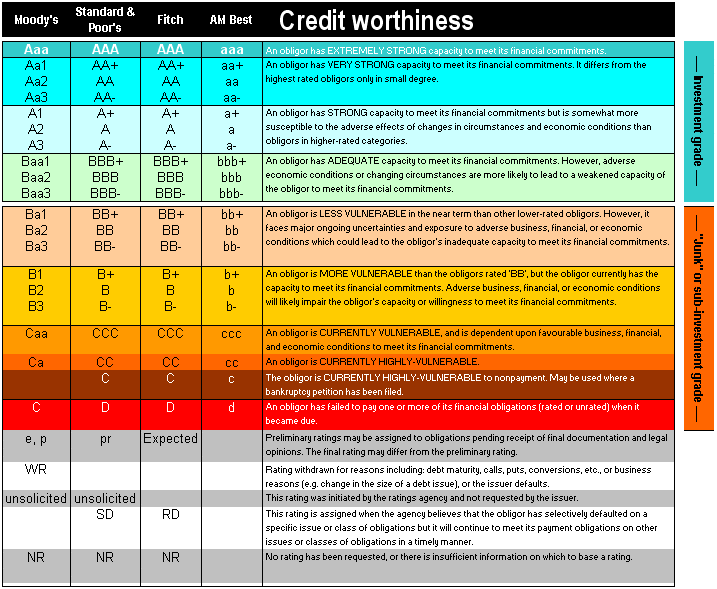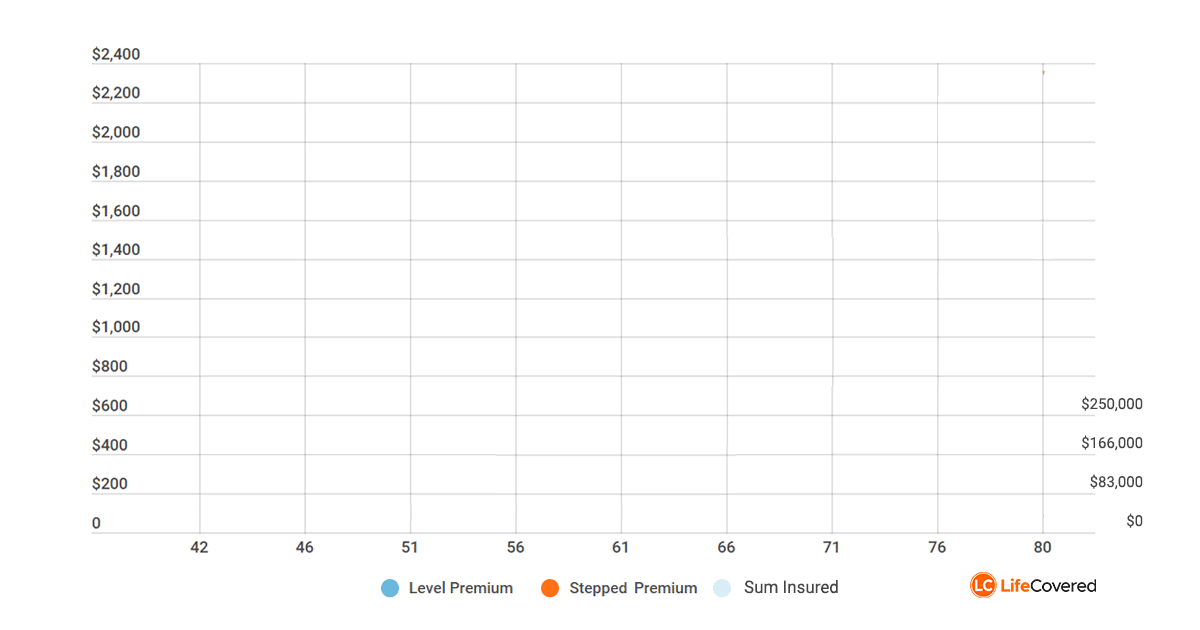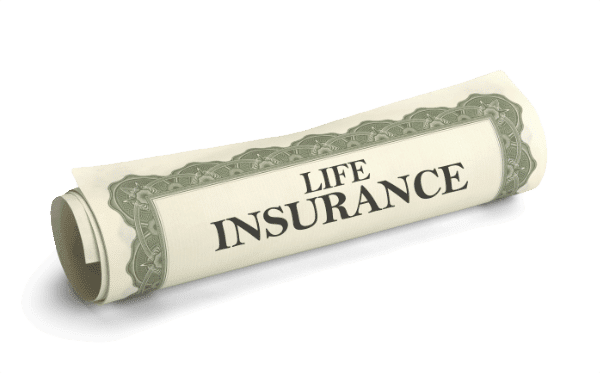Best Life Insurance Companies of 2024
in New Zealand
Our Top Rated Life Insurance Companies
- By Willi Olsen
- Updated
When my family and I immigrated to New Zealand, I analysed the market for the best life insurance companies.
Since then I’ve helped hundreds of Kiwi families find the right life insurance and peace of mind.
Buying a life insurance policy can help protect your family’s finances and make the difference between them doing well after you’re gone or having a hard time. Many life insurance policies can help you reach your financial goals and stay within your budget.
According to a life insurance report from the Financial Services Council¹, about two-thirds of all N.Z. households would suffer financially if the primary earner died.
To help you get started, we’ve compiled a list of the top life insurance companies of 2024 in New Zealand. We’ve also gathered information about the top insurance companies, how the life insurance buying process works, and how an independent financial advisor can help you with free advice to personalise your insurance plan.

Key Takeaways
Best Life Insurance Companies in Detail:
| Rating: | AA (Very Strong) Fitch Ratings |
| Actual Solvency Capital: | $260.2M |
| Solvency Ratio: | 223% |
| Claims Paid 2022: | $646.4 M |
| Market Share Q4’21 | 31.5% |
AIA New Zealand
- Overview
- Pros & Cons
AIA New Zealand, founded in 1981, is the largest health and life insurance company in New Zealand by policies in force and by claims paid.
Pros
- Terminal Illness Cover
- Digital underwriting (pre-approval)
- Stepped policies can be converted to level premiums
Cons
- Offers only 3 level premiums policies
AIA Insurance offers life insurance policies with no maximum sum assured, tax-free payout, and stepped and level premiums fixed for ten years until age 65 or 80. In addition, family protection provides a monthly tax-free payment to your family rather than a lump sum payment.
AIA New Zealand Limited has an AA rating with Fitch(²). AIA New Zealand bought and merged with Sovereign in 2018. It also offers a way to save money with its AIA Vitality program. By making healthy decisions, such as going to the gym and recording your results in its mobile app, you can earn insurance discounts and unlock discounts with various retailers.
Read the full AIA New Zealand Review.
| Rating: | AA- (Stable) Standard & Poors |
| Actual Solvency Capital: | $410.0M |
| Solvency Ratio: | 112% |
| Claims Paid 2018: | $121.5 M |
| Market Share Q4’21 | 10.4% |
Asteron Life
Pros
- Digital underwriting (pre-approval)
- Stepped policies can be converted to level premiums.
- Worldwide 24/7 cover
Cons
Asteron Life is a life insurance company that offers death and living benefits insurance policies through accredited brokers in New Zealand. All of the policies it sells require underwriting.
Asteron Life has been awarded “Life Insurance Company of the Year the 2021” at the ANZIIF NZ Insurance Industry Awards. Asteron Life has roots back in 1878 New Zealand. Standard & Poor upgraded Asteron Life’s Financial Strength rating from A+ to AA-, with a stable outlook due to strong performance during COVID and underwriting performance.
“Claims acceptance rates continue to remain high at 95%,” says Executive General Manager Life Grant Willis about the 2021-22 financials(³).
Read the full Asteron Life Review.
| Rating: | A- (Excellent) A.M. Best |
| Actual Solvency Capital: | $298.8M |
| Solvency Ratio: | 120% |
| Claims Paid 2022 | $142.9M |
| Market Share Q4’21 | 10.8% |
Fidelity Life
Pros
- Digital underwriting
- Stepped policies can be converted to level premiums.
Cons
The youngest claimant was 26 years old, and the oldest was 100 years old. And the three most common conditions were cancer 36%, Cardiovascular conditions 19% and Respiratory conditions 14%.
Founded in 1973, Fidelity Life has an A- financial stability rating from A. M. Best and is the largest New Zealand-owned and operated life insurer. The Company won the ANZIIF Life Insurance Company of the Year for three consecutive years, namely in 2017, 2018 and 2019.
Fidelity Life bought the Westpac life insurance book of business in 2021 and entered a 15-year distribution arrangement with Westpac NZ.
Read our Fidelity Life Review.
| Rating: | A (Excellent) A.M. Best |
| Actual Solvency Capital: | $597M |
| Solvency Ratio: | 113% |
| Claims Paid 2018: | ? |
| Market Share Q4’21 | 11.3% |
Chubb Life New Zealand
Chubb New Zealand has various available policies, including a comprehensive suite of personal and business financial products.
Policyholders can claim up to $1,000 during a policy year for legal, career and budgeting advice, mental health counselling and other support services. It complements their existing cover, is available to dependent children and, best of all, it’s available at no additional cost.
Your child (between 3 months and 18 years old) is eligible for up to $50,000 in free Trauma Coverage, courtesy of your insurance company.
Globally, Chubb has over 200 years of insurance experience. Parent company Chubb Limited is a Fortune 500 company listed on the New York Stock Exchange (NYSE: CB) and operates in over 50 countries and territories.
Chubb Limited (NYSE: CB) in July 2022 announced it had completed its acquisition of Cigna New Zealand(⁴).
Non-Medical Life Cover Limited:
- Age up to 45: $2.5m
- Age 46 – 50: $1.5m
Read about Chubb Life Insurance.
| Rating: | A (Excellent) A.M. Best |
| Actual Solvency Capital: | $425.6M |
| Solvency Ratio: | 125% |
| Claims Paid 2018: | $85.5M |
| Market Share Q4’21 | 12.00% |
Partners Life
The youngest claimant was 16 years old, and the oldest was 88.
Partners Life is a health and life insurance company that offers its policies through agents and independent brokers.
Loyal clients automatically get a discount on their policy premiums annually, designed to reward them for keeping their policy with Partners Life for the long haul. Of course, the longer you stick with Partners Life, the larger your premium discount will be.
Partners Life started as a small NZ Startup in 2011 and has grown organically and by acquisition to become the second-largest health and life insurer in New Zealand by in-force policies. Partners Life bought the BNZ life insurance book of business in 2020.
On August 12, 2022, global life insurance specialist Dai-ichi Life Holdings, Inc announced its acquisition of 100% of the shares in Partners Group Holdings Limited, the parent company of Partners Life Limited, subject to the regulator’s approval.
Read our Partners Life Review.
How I found the best life insurance
I looked at five things to sort out the best life insurance in New Zealand from the ‘don’t waste your time’ types.
The process of purchasing a life insurance policy is not that different from purchasing a piece of property. In both instances, you are searching for something that is sure to be an integral element of your life well into the future. Not unlike the way you do your research and inspect a potential home before you buy, it is necessary to conduct a similar investigation when you are considering different life insurance policy options.
Heed the advice that follows below to make certain that any prospective life insurance company is on firm footing and likely to withstand the test of time.
After talking to industry experts and checking out the fine print I’ve narrowed the best life insurance companies in New Zealand down to five companies.
You might find it really difficult choosing between different life insurance companies thanks to all the jargon.
To make it easier for you I’ve waded through all the fine print and listed the best life insurance companies in New Zealand.
But remember New Zealand’s Best Life Insurance Policy is only as good, as the company that backs it.
- Credit Rating
Ability to Pay Claims - Premiums
Increasing Premiums vs Fixed Premiums - Underwriting
Who owns the policy the insurance company is selling? - Policy Wording
The best life insurance companies will “pass back” advantageous policy wording in the future. - Tailored Features & Benefits
Premium Holiday and Trauma Cover Buy-Back are probably the most popular optional benefits.
Proven Top Credit Strength
The last thing you need when life hands out some bad news is to hear that your insurance company isn’t able to pay out on your policy.
Financial strength ratings estimate the likelihood that an insurer will be able to meet its financial obligations, such as paying claims due to pre-mature death or terminal illness.
It’s a pretty reliable measure of whether or not a company is going to live longer than you will.
If you’re choosing between two companies, one rated AA- and one rated A+, either one is likely to be there when circumstances change.
But if you’re choosing between companies that are rated A+ and B++, financial strength may become a bigger factor in your decision. And more so post COVID-19.
The leading Life Insurance Companies in New Zealand, have a minimum credit rating from one of the following:
| International Credit Agencies | Minimum Credit Rating |
|---|---|
| A. M. Best5 | a- |
| Fitch6 | A- |
| Moody's7 | A3 |
| Standard & Poor's8 | A- |

Source: https://www.interest.co.nz/sites/default/files/embedded_images/image/credit-ratings-compared_2.gif
Comparing Credit Ratings for New Zealand’s Life Insurers
By comparing New Zealand’s Life Insurance Companies Credit Rating, Pinnacle Life dropped off the list as the company’s credit ratings are below our benchmark.
| Insurer | Minimum Credit Rating | Below Minimum Credit Rating |
|---|---|---|
| AIA | AA (Very Strong) Fitch | |
| Asteron Life | AA- (Stable) Standard & Poor's | |
| Chubb | A+ (Excellent) A. M. Best | |
| Partners Life | A- (Excellent) A. M. Best | - |
| Fidelity Life | A- (Excellent) A. M. Best | |
| Pinnacle Life | - | B (Stable) A. M. Best |
Claims and Approval process
The life insurance approval process varies between the providers. But a good rule of thumb is the more questions they ask upfront, the fewer questions they ask at claim time.
The leading insurance companies we’ve partnered with all have a thorough onboarding process. And it might feel like it’s a little harder to get cover with these companies.
However, I believe there is a direct link between a thorough upfront onboarding process and how easy it is to get claims paid.
The approval process can be as quick as 30 minutes to a couple of days or weeks.
The industry term for approval is underwriting. And an underwriter’s main role is to ensure that applicants are charged the appropriate premium (price) for the desired level of insurance coverage based on the assessed risk.
In some cases, where the value of the policy exceeds some financial thresholds or the applicant has reached a certain age, a medical examination by a nurse or GP is necessary. The exam typically consists of blood pressure readings, urine and blood samples, height and weight measurements and a medical questionnaire, which is all paid for by the insurer.
If you are willing to invest some time now in your life insurance policy and are willing to take a medical examination you will undoubtedly have the best cover in place.
Other providers embrace you now, ask fewer questions upfront, but when circumstances change and it’s time to claim start asking all the hard questions.
Guaranteed stepped to level conversion
Would you like to know how much your life insurance premiums will costs now and in 10 years?
Many families get a life insurance quote online and buy the cheapest life insurance policy.
Only to discover that the cheapest premiums have become too expensive after a couple of years.
So, how do I get the cheapest life insurance premiums?
Statistics tell us that most New Zealanders are forced to cancel the ‘cheapest’ life insurance policies when they need them the most – in their 50s and 60s. Because the premiums have become unaffordable.
Level premiums or fixed life insurance premiums, give you real peace of mind that your life insurance won’t be costing you anymore when you’re 64 than they do when you are 30.
The top insurers we have selected to work with, give you options with stepped and level premiums or combining both.
Without further health questions.
And this could be a good thing to do when your circumstances change, and you feel the need for more certainty and financial stability.
This means you can start with lower premiums that are more affordable for you now.
And when you reach a more stable period in life you can set your premium payments at a level you know you can afford for the rest of your life.
Policy Wording Pass Back
The best life insurance policies have a feature called “policy wording pass back“.
Any future advantageous policy upgrades, the best life insurance companies make to your policy will automatically be ‘passed back’ to you.
This means the wording that would apply would be the best wording for your situation (the new wording or the existing wording on your original policy).
At LifeCovered, we believe “policy wording pass back” is almost like a policy Warrant of Fitness.
Without “policy wording pass back”, your policy will not evolve with time and you may miss out.
Tailored Features & Benefits
- Trauma Reinstatement
Trauma insurance reinstatement is an optional benefit where you can repurchase 100% of your trauma insurance 12 months after a claim benefit is paid. - Terminal Illness Benefit
Means the insured person’s life expectancy is, due to sickness and regardless of any available treatment, not greater than 12 months. Ie. expected to die within 12 months. - Special Events Increase
You can increase the life cover amount without the hassle of providing new medical evidence. - Premium Holiday
Lets you stop paying premiums for up to six months if you experience financial hardship. You can still make claims during this time. - Needlestick
Pays you the Needlestick sum insured if the insured person contracts Hepatitis B or C or HIV while working. Available to people in the medical and emergency services industries.
Find the best life insurance
Get 20% Cashback, credited your bank
account within 7 days
How Much Does a Life Insurance Policy Cost?
The cost of a life insurance policy can vary widely, even among policies for people in the same demographic. Some of the factors determining the cost of premiums for a life insurance policy include the life insurer, age, sex, health, and policy add-ons (also called riders).
If you look at a person’s gender, the difference in cost for a 35-year old female and male in the Standard Risk class with a $250,000 rate-for-age policy, the difference between the insurers is minimal.
Age is another crucial factor.
The difference between a 30-year-old female in the Standard Risk Class and the same female and risk class at 55 years old with a $250,000 rate-for-age from AIA is almost $130 per month.
I have sourced quotes directly from individual insurers in this best life insurance comparison.
Re-sellers like Countdown, State or AMI are not included.
Premiums are without any bundling discounts and are Yearly Renewable premiums, non-smoking male and female.
Life insurance rates - male
Compare life insurance rates - female
What I hope you see here is that no matter which insurer you go with, premiums double 5 to 6 times and more.
To further break down the costs and future costs of life insurance in New Zealand, I have made up three scenarios.
1. David and Liz, are both 25, don’t smoke, healthy and want Life Insurance cover for $750,000 to cover the mortgage.
- David’s cheapest Yearly Renewable Term Quote (lump sum payout) is $54.45 per month and increases yearly to $14,546.53 when David is 80.
- A term life insurance (lump sum payout) until 80 for David would cost $116.16 per month.
- Premiums and the cover stays fixed and would cost less than a third compared to above “cheap” Yearly Renewable Quote.
- Liz’s cheapest Yearly Renewable Term Quote (lump sum payout) is $30.27 per month and increases yearly to $11,063.47 when Liz is 80.
- A level term life insurance (lump sum payout) until 80 for Liz would cost $76.78 per month.
Level life insurance would start higher, but comparing the total premiums paid until 80, Liz would saved almost 70% of premiums paid, if selecting Fixed Premiums vs. Yearly Renewable Term policy, which started cheaper.
Things to consider:
- Long-term planning
- If budget is tight now, consider going Yearly Renewable now and switch to Fixed premiums when finances allow it.
- Option to combine yearly renewable term policy with a level term policy
2. Sandy and Rebecca, are both 25, smokers, healthy and want life insurance cover for $750.000 to cover the mortgage.
- Sandy’s cheapest Yearly Renewable Term Quote (lump sum payout) is $92.03 per month and increases yearly to $20,611.65 when Sandy is 80.
- A term life insurance (lump sum payout) until 80 for Sandy would cost $207.02 per month.
- And over the lifetime, the total cost would be less than half compared to the total Yearly Renewable Term Policy cost.
- Rebecca’s cheapest Yearly Renewable Term Quote (lump sum payout) is $52.59 per month and increases yearly to $14,546.53 when Liz is 80.
- A level term life insurance (lump sum payout) until 80 for Liz would cost $122.06 per month.
Term life insurance would start higher, but comparing the total premiums paid until 80, Rebecca would have paid almost 3 times more money for the Yearly Renewable Term policy, which started cheaper.
Things to consider:
- long-term planning
- quit smoking would save heaps of money
- use a broker to tailor short- and long-term cover to save more money
3. John 41, is healthy, non-smoker and wants to insure for $250.000 as a family protection
- The cheapest Life Insurance (lump sum payout) starts at $30.19 per month
- 20 years later, what started as the cheapest Life Insurance policy, at age 61 is $236.03 per month
- If John kept the stepped policy until age 80, he would have paid almost $400.000
- Fixed premiums until age 80 would be $78.97 per month.
Things to consider:
- Long-term planning
- Getting advice from a broker and tailor short- and long-term cover to reduce costs.
Statistics tell us that Yearly Renewable Term policy owners switch insurance providers every 7 to 10 years because the yearly premium increase means families can’t afford the cover anymore.
Why pay too much to an insurance company or bank?
And that is why, people like you and me, switch insurance providers enticed by first years savings.
Only to be disappointed because premiums keep increasing rapidly anyway.
Sadly, very few insurance companies and banks provide projections of premiums and show you how much you are going to pay now, next year and in 10 years.

Life Insurance Basics
How health, lifestyle, and smoking determine premium costs – how you can get the cheapest premiums and how life insurance can work as family protection insurance for future generations financial heritage.
- Life Insurance
Sometimes called death benefit - Accident Death Insurance
Pays a lump sum if you die in an accident - Trauma or Critical Illness
Pays a lump sum if you are diagnosed with a specific illness - Income Protection Insurance
Secures a monthly income if you cannot work due to illness or accident - Mortgage Protection
Pays a tax-free monthly benefit to cover your mortgage

Many New Zealanders mistakenly believe that the best life insurance deal is the policy with the cheapest premiums today.
Only to discover premiums increasing year after year and becoming more and more unaffordable.
Forcing many to cancel, when they need it.
The best life insurance deal is Life Insurance Premiums that don’t increase with age, because cover and premiums stay the same and are more affordable long-term, saving you a lot of money now and helping you to stay cashflow positive as you build your financial assets for retirements.
Pre-existing Conditions
A pre-existing health condition such as heart disease, stroke, weight, cholesterol, cancer, high blood pressure, diabetes, pre-diabetic, kidney and liver disease in itself might not be a reason for declined life insurance.
An experienced life insurance broker knows how each insurance company defines pre-existing conditions and how pre-existing health conditions are dealt with on a case-by-case basis.
It might be tempting not to disclose a medical or health condition. But honesty is the best policy.
Because life insurance is a legal document and you have a legal duty of disclosure.
An independent, trustworthy insurance broker has the know-how and experience to quote you the best life insurance deal from the leading life insurance companies in New Zealand.
Be open and honest to your life insurance broker, and in return, the broker works for you to find you the best policy that suits your needs and budget.
One of the main advantages of employer-provided life insurance is automatic acceptance, which often means full cover for pre-existing health conditions and discounted premiums.
What Types of Life Insurance Do Others Buy?
The ideal sort of life insurance for you is one that fits your budget, financial goals, and dependents’ needs.
What was your primary reason for purchasing life insurance
What does life insurance exclude?
Life insurance policies generally exclude deaths from specific causes, such as suicide, war, criminal activity, and hazardous activities like skydiving.
It can also exclude deaths related to pre-existing medical conditions that were not disclosed to the insurance company at the time of policy purchase. Policies may also exclude coverage if the policyholder fails to pay premiums or if the policy has lapsed.
Therefore, it is important to review the terms and conditions of a life insurance policy to understand what is and is not covered.
Types of Life Insurance Policies
Many different types of life insurance policies are offered in New Zealand.
For a claim to be accepted and paid, the insured must die or become terminally ill. Therefore, sometimes Life Insurance is also called Death Benefit Insurance.
Before the following life insurance policies can be issued, the insurer will assess risk; simply put, the insurer will determine your risk of dying earlier than the average person of your age and gender.
People with similar risks pay the same or similar premium rates.
You could face increased premiums or even declined insurance if you have health problems.
- Life Insurance
- Family Protection Insurance
There are also other life insurance policies where no medical questions or health checks are required.
What is Term Life Insurance?
Term life insurance policies are renewable annually and often have no expiry date. The premium will be adjusted each year to reflect the amount of cover, the age of the insured and the probability of a claim being made.
The options for premium payments may be set according to the age of the policyholder, and are renewable every year, or ca neb level to a specified age.
- ‘Level’ – the premium for the fixed term stays the same, with option to inflation adjust the cover
What is Whole Life Insurance
Whole life insurance policies protect against the financial impact of death and/or terminal illness, with the option to extend to cover against disablement.
These policies are no longer commonly sold, however, there are many whole life legacy policies in the market.
What is Endowment
Endowment policies build up cash value equal to the death benefitThese policies are no longer commonly sold, however there are many whole of life legacy products from a variety. of insurance providers.

The following policies are guaranteed acceptance life insurance.
No medical life insurance is ideal for those looking to get life insurance quickly with pre-existing conditions such as high blood pressure, weight or cancer. However, the cost is often higher for no medical life insurance vs. risk-assessed life insurance.
- Accident Death Cover
- Guaranteed Acceptance Life Insurance
- Funeral Insurance
Conclusion
Getting the best life insurance policy is specifically related to your unique situation and needs. We can save time and money by comparing the market for the best suitable policy that fits your needs and budget. And we offer the same prices as the insurance companies and their in-house agents.
A good Insurance broker will help you select the best policies for your requirements. And they’ll negotiate the best premium prices on your behalf. Unfortunately, some think brokers get a huge commission to sell you expensive policies and add-ons you don’t need.
Insurance companies include a broker fee when they set their premiums, so even if you buy your policy directly through an insurer’s website, your premiums will be the same as if you worked with a broker.
The only difference is where that commission money goes.
Ironically, you may even pay less by using an insurance broker.
Insurance brokers know where to get the best deals on life insurance and will often get you a lower premium than you can get on your own.
At LifeCovered, we’ve dealt with the fine print in insurance policies every day for years. It’s our business to get the best deal for you.
Ask your financial advisor about life insurance

The Insurance Specialist
Willi can help you with independent, honest expert advice and suggest solutions that fit your needs and budget.
FAQ's
Who is the beneficiary?
The beneficiary is who or what you select to receive the money from your life insurance policy after you pass. This could be a person such as a family member or friend or an organization like a charity.
Who is the policyholder?
The policyholder is the person who purchases the life insurance policy. This may be the same person who is being insured, the beneficiary, or someone else like a spouse.
What is a death benefit?
The death benefit is the money paid to the beneficiary after the person insured has passed away. The death benefit is usually paid only when the policy is paid up.
Does life insurance pay for death by suicide?
Some companies will pay the death benefit for death by suicide. There are suicide clauses or waiting periods within a life insurance policy that generally expire 13 months after the policy was purchased.
If you or anyone you know is contemplating suicide, help is available. Call any time of day for free, confidential support from 1737, Need to talk, free call or text 1737 to talk to a trained counsellor.
How much life insurance do I need?
How much risk you are willing to accept and the budget you have to spend on insurance is personal.
Therefore, there is no magic formula for figuring out how much life insurance you need. Still, a good starting point is to determine your current and future financial obligations.
We use cash flow modelling to understand your current and future financial situation. The graphs give us a visual understanding and show how much money you could have in the future and whether you are on track to achieve your goals.
In brief, it allows us to ask the three big questions:
- What happens if …….?
- Will I be all right if……….?
- Can we afford to……….?
How does life insurance work?
Life insurance is a policy taken out on your life and paid out in the event of your death or terminal illness to protect those who depend on you financially.
In exchange for premium payments, an insurance company will pay a death benefit to your beneficiaries if you pass away while the policy is ‘in force.’ (‘In force’ means the policy is active and hasn’t been cancelled). The money is received tax-free, and beneficiaries can use it for whatever purpose.
Life insurance can be divided into two main types: level and stepped. Stepped premiums increase yearly; level policies don’t increase because of age and stay the same for 20 or 30 years.
What is life insurance?
Life Insurance is sometimes used as a general term for all the policies that life insurers offer.
To break it down, life insurance comes in many shapes and forms. And here are the most common ones:
Can I have more than one life insurance policies?
It is perfectly legal to have multiple life insurance policies. You simply have to be able to justify the amount of coverage you request.
Who has the best Life Insurance Policy?
No one size fits all is compared to the best life insurance policy. But the best life insurance policy in New Zealand is the one that is tailored purposefully with extra optional coverage and benefits if needed to build a financial protection plan for you and your family.
What else should I know when buying life insurance?
Some policies have nasty exclusions.
Some life insurance policies exclude certain conditions (e.g. cancers and heart conditions) that could leave you without support if you develop those conditions.
Other policies may require you to jump through hoops to prove your claim.
So make sure you check the fine print for exclusions.
The Best Life Insurance Companies in New Zealand have you covered for all cancers. And they accept claims for heart attacks as defined by the medical profession and not under the more narrow insurance profession definition.